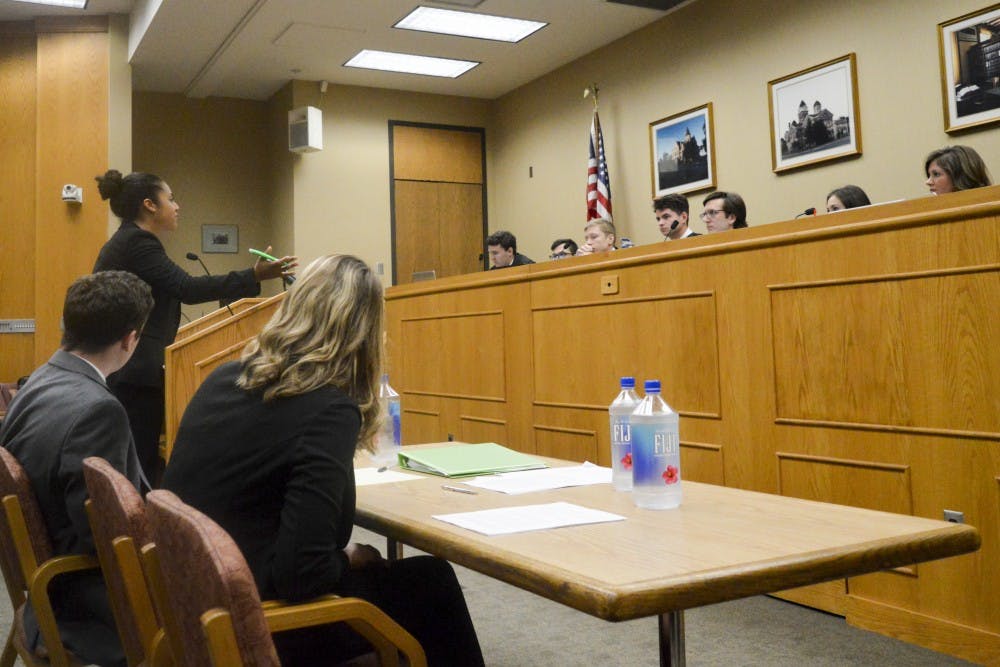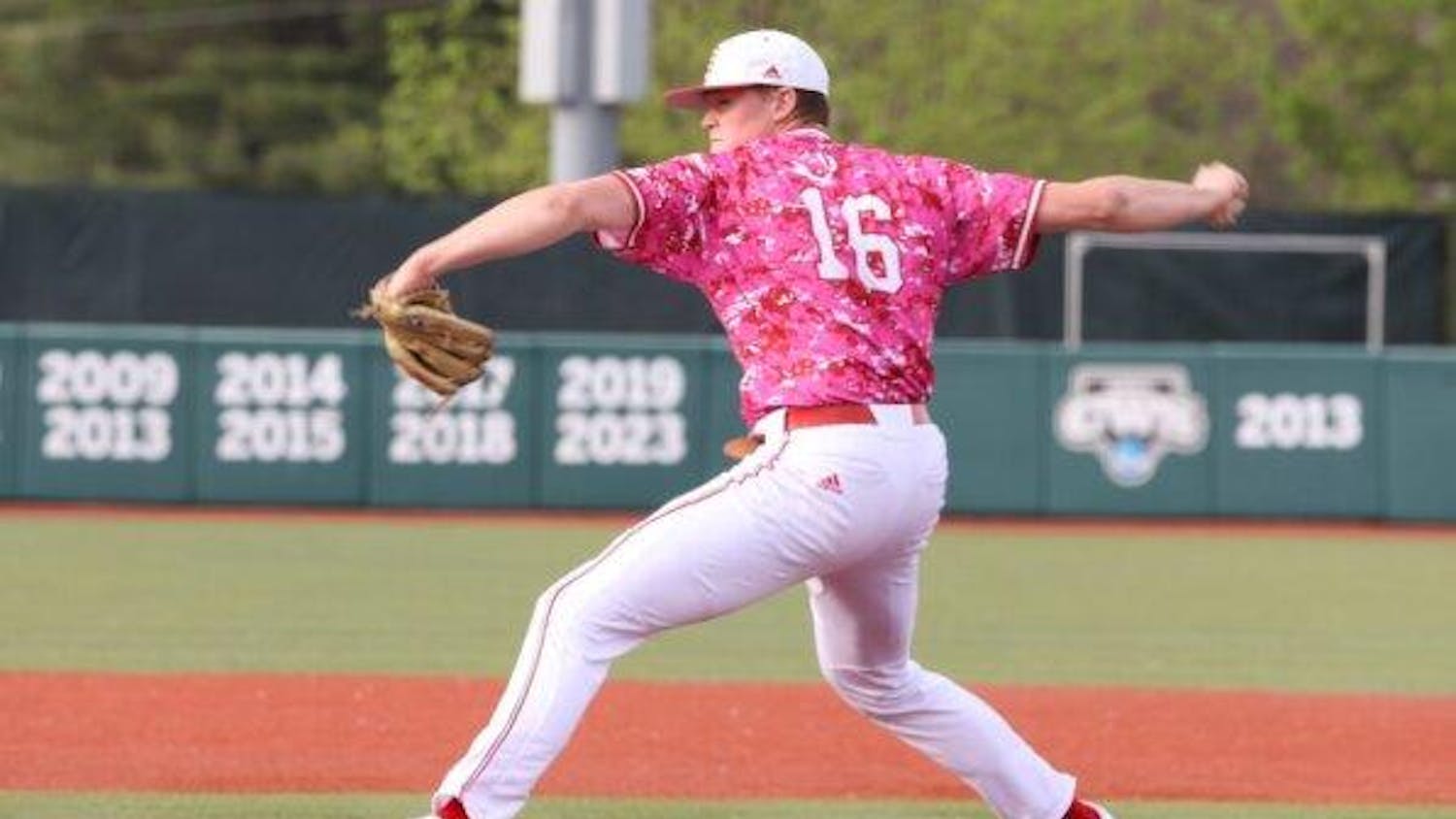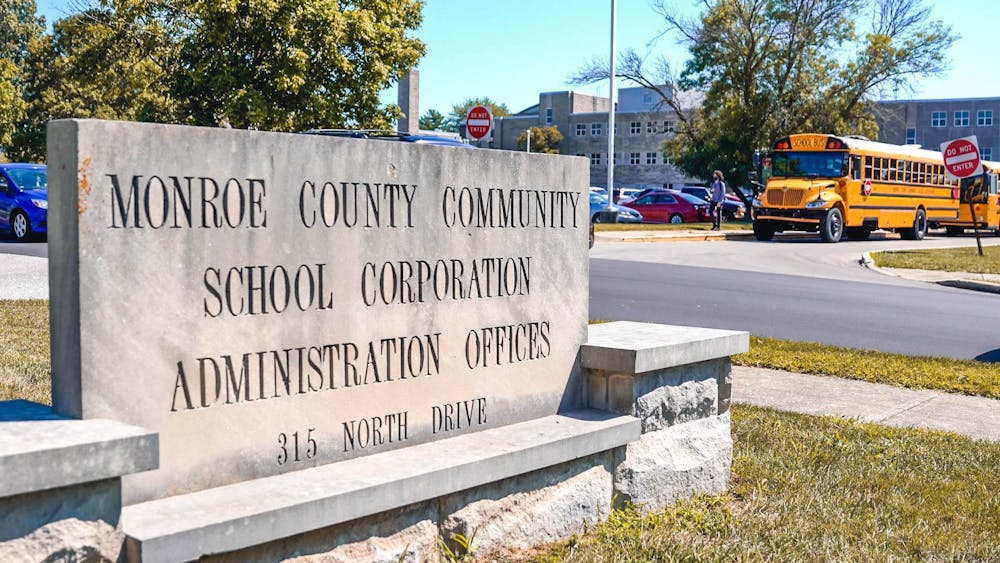It was a game of “he said, she said.”
With nearly 50 screenshots from GroupMe, deleted evidence and compelling arguments on all sides, the IU Student Association Supreme Court heard an appeal regarding the election commission’s decision to deduct 21.4 percent of REAL’s votes because of voter fraud.
RISE said REAL should be disqualified. REAL said they did not commit voter fraud and should not be.
Three sides spoke on this issue: RISE for IUSA, the election commission and REAL for IUSA.
Two complaints were questioned.
A complaint against REAL stated the IU College Democrats sent out an email endorsing REAL and included a link used for student voting. Sending out the voting link is considered voting fraud, according to the election code.
The commission’s decision stated the IU College Democrats executive board committed voter fraud, and because REAL members were on this executive board, REAL committed voter fraud.
Another complaint stated a member of REAL’s ticket made a Facebook post supporting the ticket and distributing the voting link. REAL claims the student, IU junior Dana Khabbaz, was never a part of their ticket and was therefore a third party who was allowed to make posts such as “RISE for IUSA.”
RISE president Naomi Kellogg presented RISE’s case. Kellogg said the election commission underestimated the scope of voter fraud REAL committed.
This link was sent out to around 1,500 people. With the amount of students potentially receiving this link, Kellogg said the violation should have resulted in disqualification.
The link should only come from the official Student Life and Learning email sent out to all students, so each student has the same opportunity and the same experience when voting, Kellogg said.
“It’s all about access to the link,” Kellogg said. “When you put the link to vote with an organization that students trust, such as the IU Dems, it increases the access to the vote.”
A member of RISE obtained screenshots from a REAL GroupMe that seemed to show collusion among the IU Democrats and Khabbaz. The RISE member who obtained the information received it after she logged into her ex-boyfriend’s GroupMe, who was a part of the REAL ticket.
Kellogg said the member who gained the information opened her computer that had the GroupMe already logged in. Therefore, she did not obtain the information illegally.
These messages, however, showed a clear intent to collude with the IU College Democrats and Khabbaz, Kellogg said.
While RISE claimed the screenshots were taken out of context, Kellogg said the messages still showed an intent to mislead.
“The words are black and white,” Kellogg said.
The election commission was questioned about whether it should have disqualified REAL altogether instead of simply deducting votes.
Commission chair Adam Kehoe said there’s a spectrum of voter fraud. There is a difference between forwarding the link and threatening voters to vote for a certain ticket.
The supreme court raised questions on whether the election commission should have asked for the entire REAL GroupMe messages instead of just the screenshots they received from RISE.
Kehoe said their decision would not have changed had they received all of the GroupMe messages. They had made up their mind on deductions prior to receiving the screenshots.
The screenshots confirmed their suspicions of a collaborative effort among REAL and Khabbaz and the IU Democrats, commissioner Rachel Martinez said.
Considering the timeliness and the amount of evidence they were given, Kehoe said they were confident all the evidence they received was enough to make their decision.
“It’s our job to come up with an objective ruling based on subjective evidence,” Kehoe said.
REAL FOR IUSA
REAL president Sara Zaheer said they did not commit voter fraud or collude with either the IU Democrats or Khabbaz.
“These quotes were cherry-picked from the GroupMe,” Zaheer said.
However, as soon as REAL realized another team had access to their GroupMe, Zaheer deleted it.
Zaheer said there were links in the GroupMe to REAL’s complaints and reply briefs. They did not want anyone on another ticket to have access to these documents.
However, because they deleted the GroupMe, the supreme court had a hard time proving the screenshots given to them were taken out of context.
Quoting messages in the GroupMe, supreme court members said the evidence made it seem like REAL deleted the GroupMe because it would incriminate them.
Zaheer said they deleted it because it gave other tickets access to their ticket’s documents.
“All evidence we submitted was honest,” Zaheer said.
Chief Justice Owen Hoepfner said the court will come out with a decision as soon as possible — most likely in the next 48 hours.
An official opinion, which will be used for precedent, will come out within the next week.






